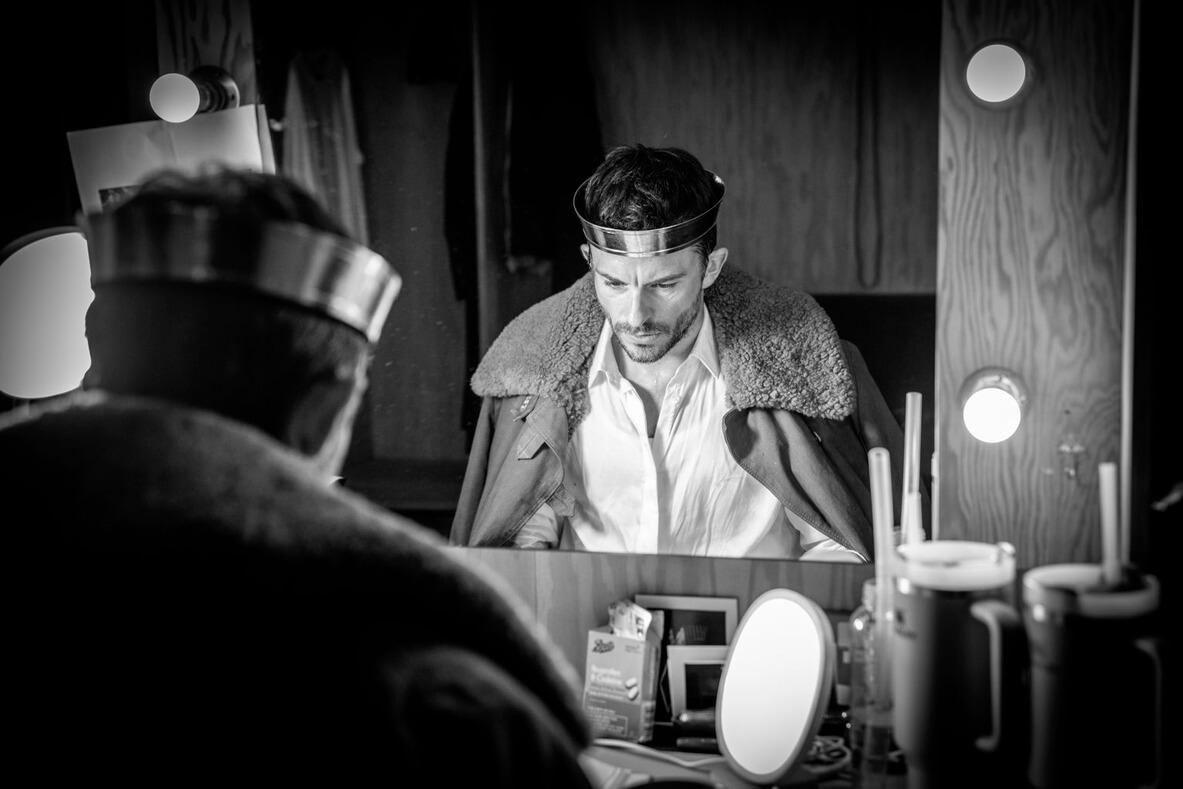The strength of Dennis Kelly’s post apocalyptic play lies in the time framing of episodes as the pair unravel events preceding the disaster, their attitudes towards those who may have committed such an atrocity and most importantly, the subsequent imposition of fairness and hierarchy in determining their differing approach to survival.
Director Lyndsey Turner has worked with designers Peter McKintosh and Tim Lutkin to create an almost two-dimensional playing area which is framed by white neon strip lights which illuminate during set changes (leaving everything else in darkness) and largely disappear as the action takes place. It’s a neat and effective device which serves the narrative well and gives audience members time to absorb the gradual, incremental tension increases which understandably trigger some alarming verbal exchanges and disturbing responses to frustrations and historical revelations.
Nick Blood as Mark, is jittery, idealistic, pent-up and clearly on the spectrum and resentful of the mockery he has previously endured from mutual friends. Amaka Okafor’s Louise begins by expressing gratitude and appreciation for Mark’s preparations and an acknowledgment of what now seem to have been his justifiable concerns. But there is considerably more underpinning the situation in which they find themselves and the twists and power struggles between the two (very different but determined) personalities, soon takes on a Lord of the Flies feel.
After the End is not for the faint hearted, but well worth the trip to Stratford East for those who prefer their drama on the gritty and challenging end of the spectrum.

 Nick Blood and Amaka Okafor in After The End at Theatre Royal Stratford East (Credit The Other Richard)
Nick Blood and Amaka Okafor in After The End at Theatre Royal Stratford East (Credit The Other Richard)


 The charmingly faded grandeur of the Coronet Theatre in Notting Hill Gate once again welcomes the Norwegian Ibsen Company for their third collaborative effort — this time breathing life into the playwright’s last major work WHEN WE DEAD AWAKEN from 1899.
The charmingly faded grandeur of the Coronet Theatre in Notting Hill Gate once again welcomes the Norwegian Ibsen Company for their third collaborative effort — this time breathing life into the playwright’s last major work WHEN WE DEAD AWAKEN from 1899.